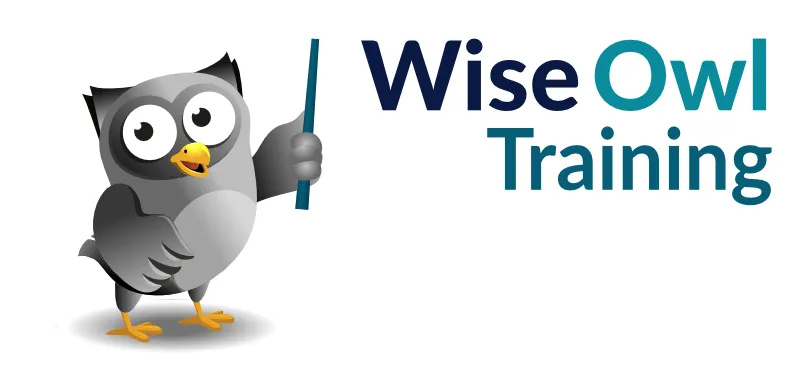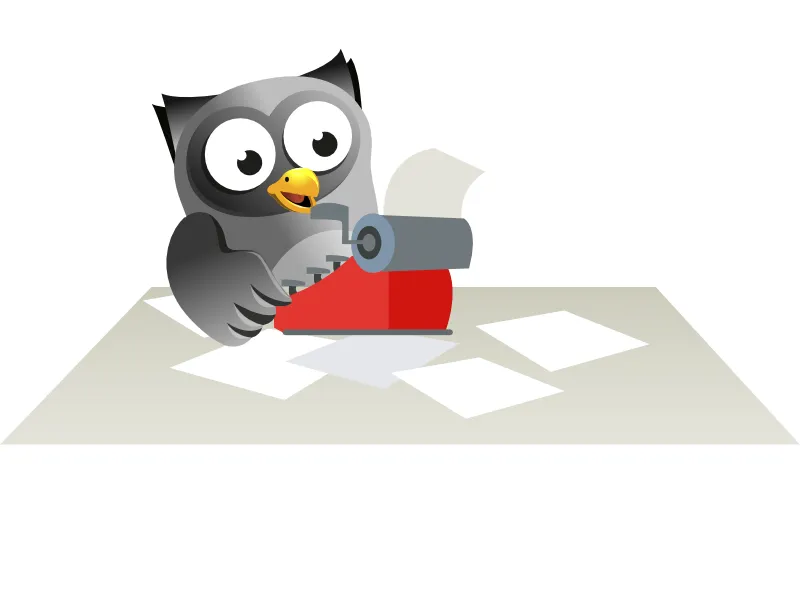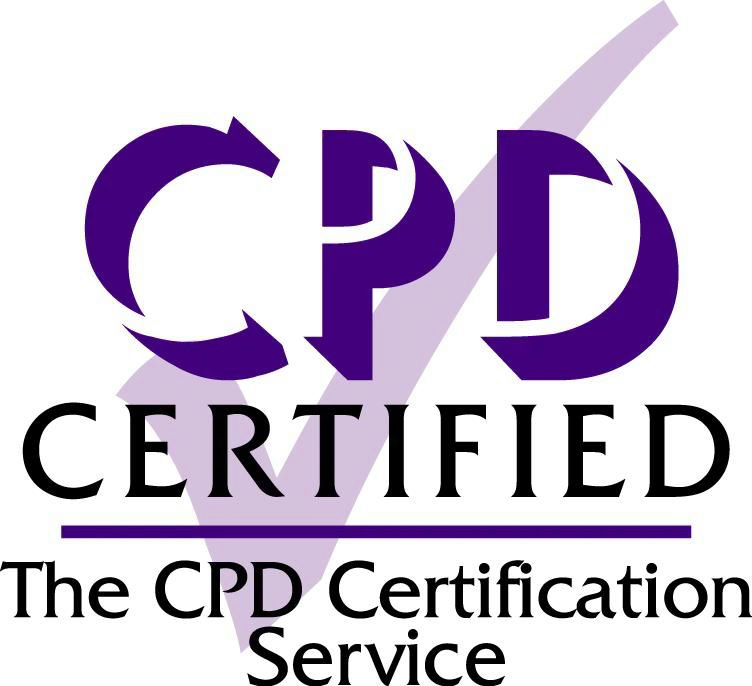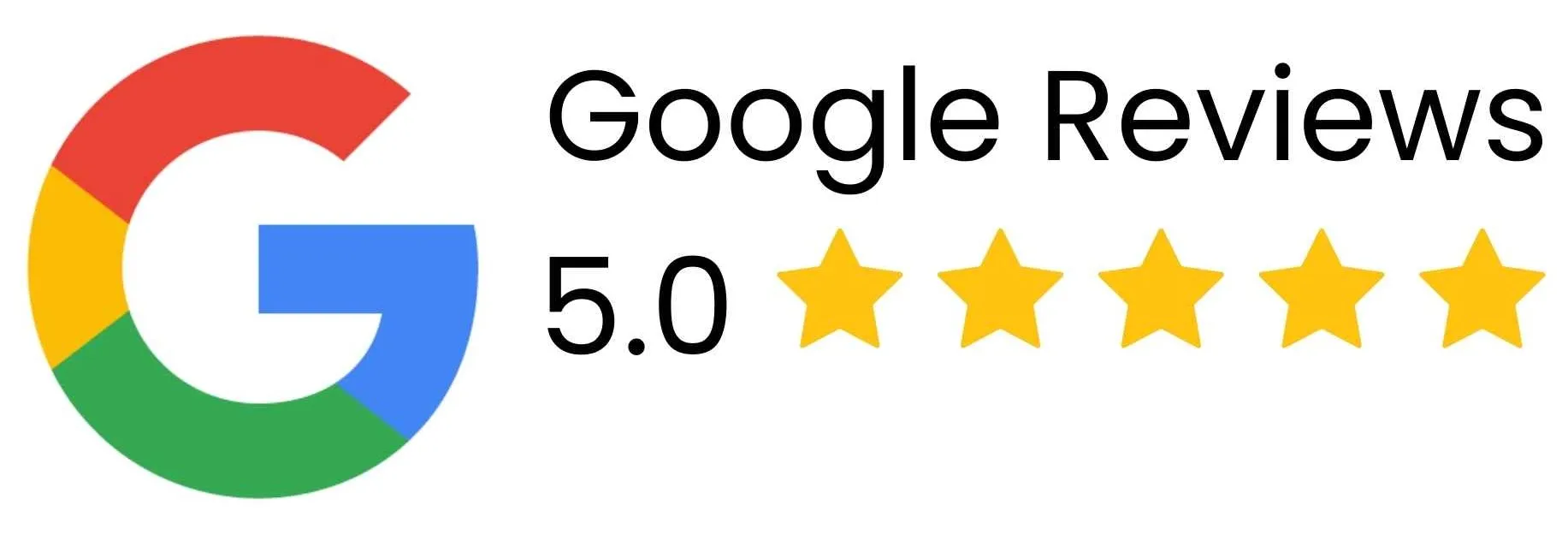Do your children ever ask you what you used to do before smartphones were invented? This blog takes you back about 20 years (sometimes longer) to give the answer!
Depending on your age you can either read this blog to wallow in nostalgia or read it to marvel at the sheer volume of STUFF that your parents used to rely on to get through daily life!
I've divided my apps into 10 different sections (apologies to Android users for the fact that I've taken the apps from my IPhone 12; I'm sure they are analogous on other phones).
1 - Getting information
On a smartphone you have the world's information at your fingertips:
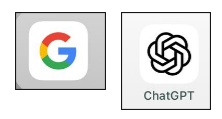
The two apps I use most to get information: Google and ChatGPT
I've listed lots of ways to get specific information under separate headings below, but in general we boomers used a LOT of directories:
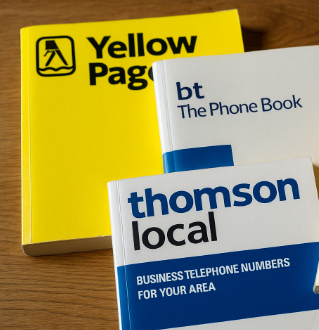
Remembering the old days ...
Before smartphones came along the first port of call was often looking through a phone directory or (more often) the Yellow Pages, followed by a phone call.
Every year a huge new Yellow Pages and phone directory would be automatically delivered through the door. If you want to see what's happened to them all, you can buy old phone directories for waste paper recycling here.
2 - Getting around
I (and, in all probability, you) have loads of apps on my phone to help me find my way round:
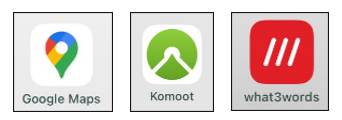
Just a few of my navigational aids (Komoot is good for planning walks and cycle rides).
It's amazing to remember just how much preparation you used to have to put into taking a trip. Here's a quick trip down memory lane:
What | Notes |
|---|
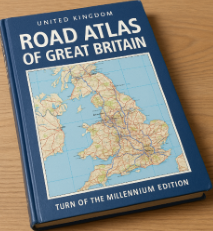 | Every car used to contain a road atlas of the UK, whether Collins, Bartholomew's, Michelin or any other brand. When trying to find your way to somewhere you would either rely on getting navigational instructions from your passenger (triggering many a domestic argument) or writing down a detailed route guide in advance and then stopping in lay-bys on the way to check your progress. |
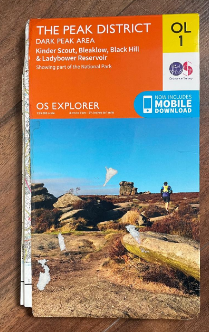 | For more detailed instructions (often for walks or cycle rides) you would have an Ordance Survey map. Most houses included a large collection of OS maps of the local area - along with favourite holiday destinations - although these quickly became out of date. |
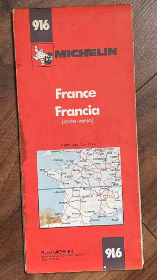 | Unfortunately we all then needed to buy maps of any holiday destinations: the first thing you would do on arriving somewhere new would be to buy a road map of the local area. The MIchelin maps (one of which is shown) were a popular choice. |
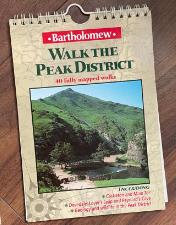 | On top of all of the above you would then need to download maps showing you local things to do, walks or (in our family's case) cycle rides. |
And the above doesn't even mention the advantages of satnav, a concept which didn't exist 20 years ago!
3 - Keeping in contact
Many of the apps we use most on our phones are for keeping in contact:

These are some of the most-used apps on nearly everyone's phone.
For the most part these provide ways to communicate which just didn't exist before, but they've certainly rendered the fax (and to some extent the landline phone) obsolete:
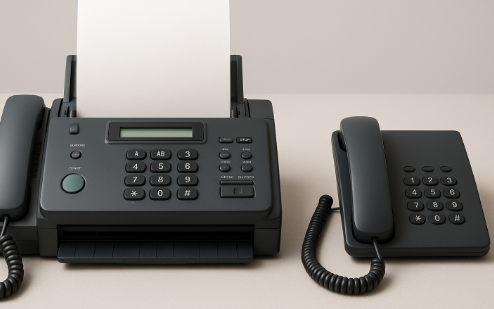
Remember trying to feed multiple pages through a fax machine, anyone?
But what I don't miss most is having to find some 10p coins so that I could make a call on a public phone when away from home:
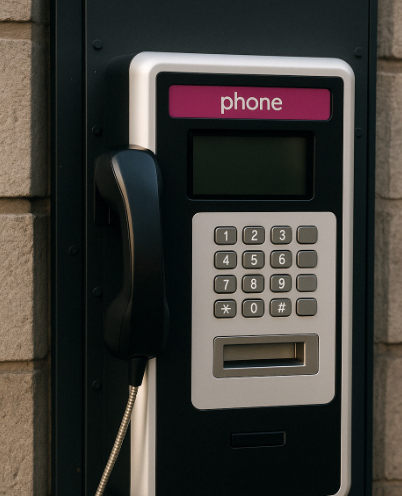
Public phone boxes used to be everywhere, including inside public buildings, but they were often broken or vandalised.
4 - Staying informed
I read The Times (for the crossword, mostly) and The Economist (for being the closest thing to absolute truth on this Earth, or so it would have you believe):

However, I have loads of other apps on my phone for getting information - here are three examples:
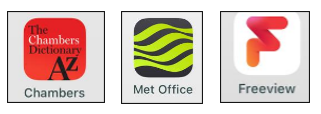
From left to right, getting information about words, weather and TV schedules.
Each of these apps replaces a direct paper copy - here are some examples:
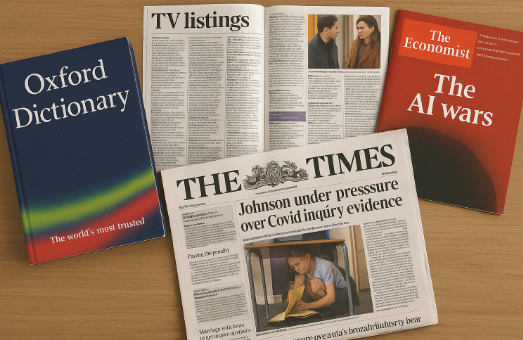
And the best thing is that as you get older you can increase the font size of digital media!
Many people lament the slow decline of print media, but it's hard to feel sorry about the fact that we no longer churn out millions upon millions of newspapers and magazines whose useful life was a maximum of one week.
5 - Organising life
In additon to the apps shown above, there are some which make it easier to organise one's life:
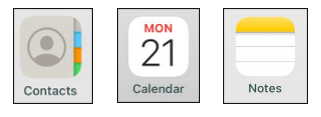
Remember the Filofax, anyone? Or the Rolodesk?
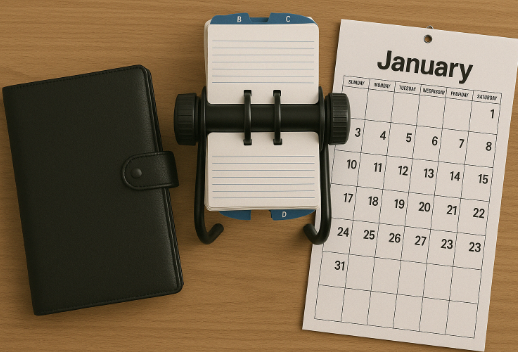
In "the old days" most people would have a rotating address holder like the one shown above next to their phone, with one card for each contact.
6 - Listening and viewing
Like so many other people, I have Spotify and YouTube on my phone, among other audio and visual apps:

Some of the apps on my phone for viewing and listening.
With great relief this means that I no longer need any of these:
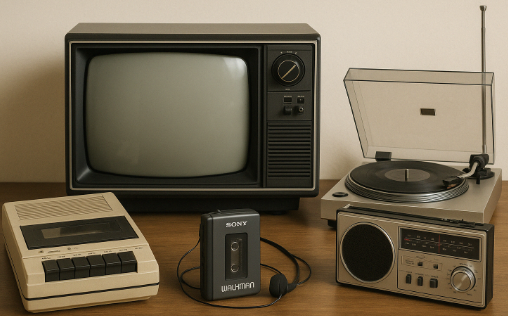
OK, the TV is a bit antiquated, but you used to need all of these to replace the functionality of the apps shown above.
As so often, though, this misses out most of the story: not only can you now choose any song in the world that you want to listen to (or queue up requests), but you can also watch any video, listen to any book or listen to any podcast (a concept which didn't exist 20 years ago).
7 - Managing your finances
Everyone will have their own bank apps on their phone - here are some of the ones I use:

Our Tesco credit card is just for the free pizzas at Pizza Express.
What these allow me to do is to avoid ever having to visit a physical bank:
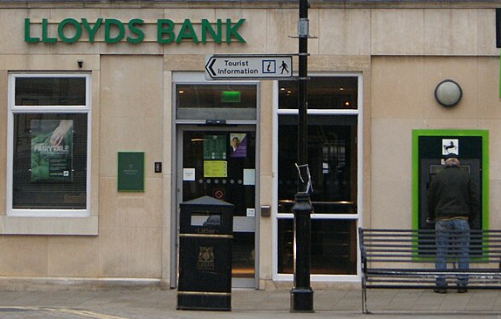
We boomers used to waste so much time going to bank branches to do things.
What online banking apps have also replaced is mounds of old bank statements, which you always had to religiously keep:
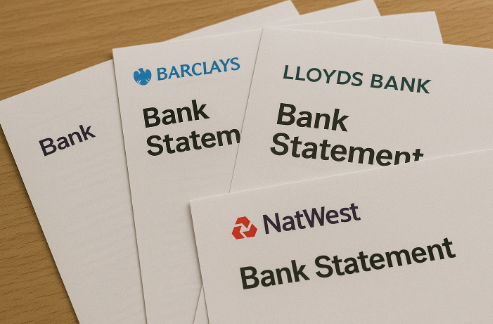
Of course, some people still keep their paper statements just in case ...
8 - Photography
Two much-used apps on most people's phones are the ones for taking and viewing photos:
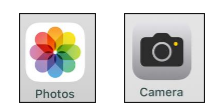
The IPhone route to all things photographic.
So now you no longer need any of these:
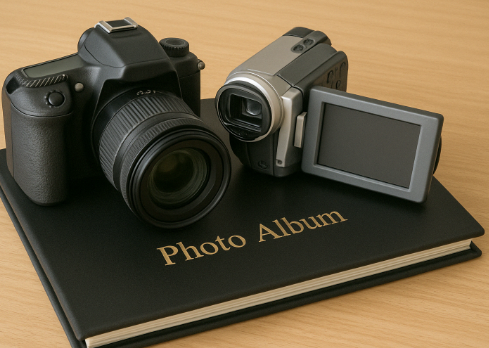
Above all, you no longer need to send photos off for reprocessing. Anyone else remember the excitement of getting your Truprint envelope containing your developed photos in the post?
9 - Other tools
Your phone contains many other apps which mean you can get by with less possessions - here are a couple:
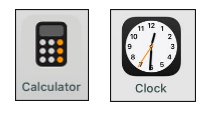
Admittedly I still use an alarm clock because I don't like having my phone when I go to sleep.
These two apps remove this clutter from your life:
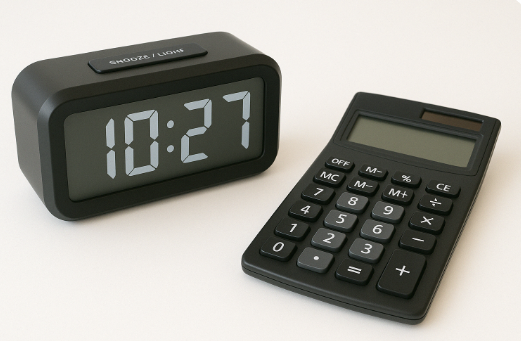
More things the world doesn't need to make!
10 - No replacement
In additon to all of the above apps, there are some which are completely new. Here's just one example:

I am only an occasional Strava user, but many people live by it.
I struggled to think what physical things this replaced. Before the smartphone how did we measure our walking or running progress against our peers, boast about our achievements and give and receive kudos? I'm not sure that we did!
So when people tell you that smartphones have brought misery to people's lives, it's worth remembering that they've also brought massive convenience, and saved the world from having to produce mountains of MP3 players, atlases, dictionaries, photograph albums, phone directories, etc.
